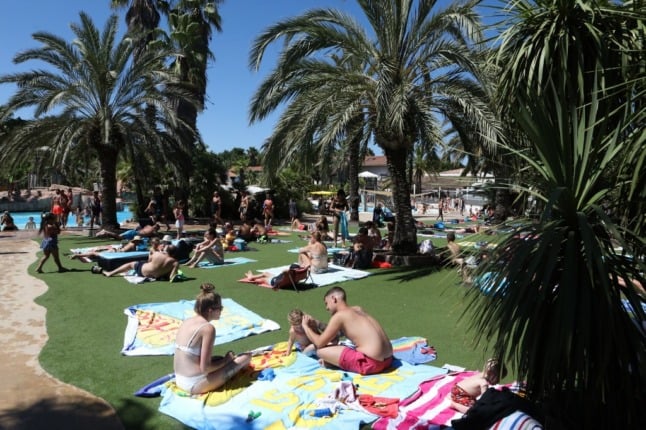We should point out that this isn’t for foreign tourists in France, it’s aimed at French residents who are preparing to decamp from the cities to the beach or the countryside for the traditional month-long summer holiday.
Health authorities in Paris have already announced that a quarter of the region’s vaccine centres will close over July and August, anticipating a slump in demand as the city empties out.
But with the threat of the delta variant looming, the government is looking at ways to keep vaccination levels high, even as the holiday season begins.
READ ALSO Could a fourth wave of Covid in France ‘ruin’ the summer holidays?
Different locations
If you’ve already had your first jab, you can now book your second in your holiday destination – or have your first injection while away and get your second once you are back home.
“From Monday, when you make an appointment on the internet, notably on the Doctolib site, you will be able to take your first appointment in one centre, and your second appointment in any other centre in the country, including in your holiday destination,” France’s health minister Olivier Véran announced on Friday.
Previously, Doctolib automatically invited users booking a first dose to select a second date in the same centre.
Flexible gaps
Véran had previously announced some extra flexibility in dates for the second dose of the vaccine.
People can now book their second dose anywhere between 3 and 7 weeks after the first, to allow some flexibility while people are away from home.
Holiday locations
Centres in Paris may be closing, but tourist hotspots have already been preparing for greater demand for vaccines this summer.
“It is certainly conceivable to receive your second or even your first injection at your holiday destination,” Dr Sylvie Quelet of Nouvelle Aquitaine’s regional health authority told The Local last week.
“The coastal départments, and particularly Landes, have changed the distribution of their centres to move them closer to the coast.
“Meanwhile, the less touristy départments are planning to work closely with the people who aren’t going on holiday.”
Towns in the Alps are also prepared for a busy summer.
“The centres are ready because there are enough doses in stock. If, on the other hand, there were not enough because of an influx of tourists in Annecy or elsewhere, we have the possibility of redistributing doses between a départment which is less tourist-focused and will use fewer doses, and a more touristy départment,” the regional health authority for Auvergne-Rhône-Alpes told France Bleu last week.
Walk-in centres
There is also a growing push to create walk-in vaccine centres that do not require appointments, situated in accessible places like supermarkets or shopping malls – there is even a ‘vaccine bus’ following the Tour de France offering the jab to spectators.
[Actualité] La vaccibus fait le Tour de France
👉 L'article : https://t.co/1LJUkIz2k9Pour plus d'actualités rendez-vous sur https://t.co/jWBlLpckz5 !#actus #actualites #article #30juin #vaccin #tourdefrance #COVID19 #vaccibus pic.twitter.com/DkuwC0LuYX
— Secours Mag (@SecoursMag) June 30, 2021
As a rule, however, most centres still require an appointment.
French residents
There is, however, no change in the policy that limits vaccination in France to people resident in the country.
Although it is possible to get vaccinated without having a French social security number or carte vitale – a fact some young Spaniards seem to have been taking advantage of – the majority of centres will ask you to show proof of residency if you are not registered in the French health system.
The goal of the new policy is not to attract foreign tourists, but to ensure people living in France do not face a choice between being protected from Covid or going on holiday.



 Please whitelist us to continue reading.
Please whitelist us to continue reading.
Member comments